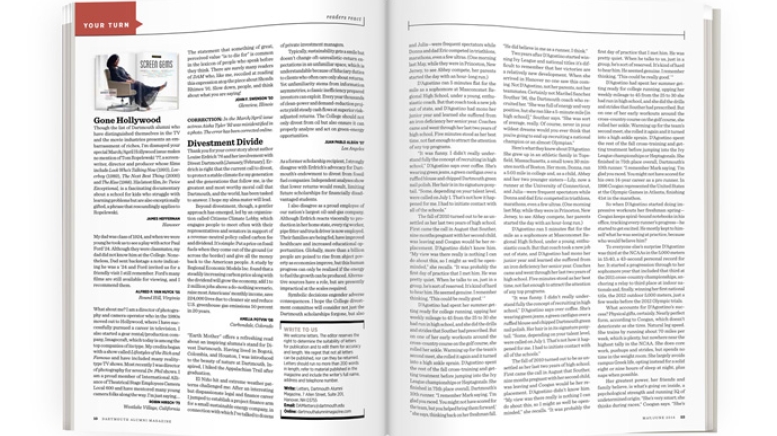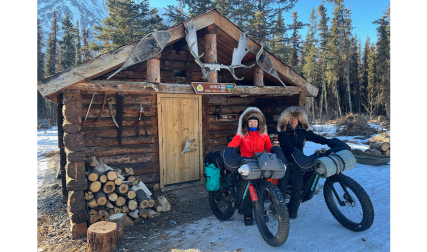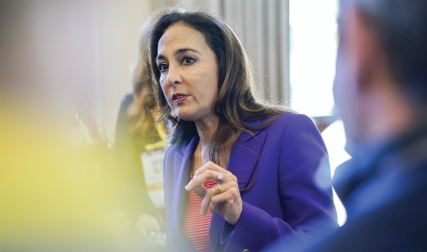Gone Hollywood
Though the list of Dartmouth alumni who have distinguished themselves in the TV and the movie industries presents an embarrassment of riches, I’m dismayed your special March/April Hollywood issue makes no mention of Tom Ropelewski ’77, a screenwriter, director and producer whose films include Look Who’s Talking Now (1993), Loverboy (1989), The Next Best Thing (2000) and The Kiss (1988). His latest film, 2e: Twice Exceptional, is a fascinating documentary about a school for kids who struggle with learning problems but are also exceptionally gifted, a phrase that resoundingly applies to Ropelewski.
James Heffernan
Hanover
My dad was class of 1924, and when we were young he took us to see a play with actor Paul Ford ’24. Although they were classmates, my dad did not know him at the College. Nonetheless, Dad sent backstage a note indicating he was a ’24 and Ford invited us for a friendly visit I still remember. Ford’s many films are still available for viewing, and I recommend them.
Alfred P. Van Huyck ’55
Round Hill, Virginia
What about me? I am a director of photography and camera operator who in the 1980s moved out to Hollywood, where I have successfully pursued a career in television. I also started a gear rental/production company, Imagecraft, which today is among the top companies of its type. My credits began with a show called Lifestyles of the Rich and Famous and have included many reality-type TV shows. Most recently I was director of photography for several Dr. Phil shows. I am a proud member of International Alliance of Theatrical Stage Employees Camera Local 600 and have mentored many young camera folks along the way. I’m just saying….
Robin Hirsch ’73
Westlake Village, California
The statement that something of great, perceived value “is to die for” is common in the lexicon of people who speak before they think. There are surely many readers of DAM who, like me, recoiled at reading this expression atop the piece about Shonda Rhimes ’91. Slow down, people, and think about what you are saying!
John F. Swenson ’50
Glenview, Illinois
CORRECTION: In the March/April issue actress Aisha Tyler ’92 was misidentified in a photo. The error has been corrected online.
Divestment Divide
Thank you for your cover story about author Louise Erdrich ’76 and her involvement with Divest Dartmouth [January/February]. Erdrich is right that the current call to divest, to protect a stable climate for my generation and the generations that follow me, is the greatest and most worthy moral call that Dartmouth, and the world, has been tasked to answer. I hope my alma mater will lead.
Beyond divestment, though, a gentler approach has emerged, led by an organization called Citizens Climate Lobby, which engages people to meet often with their representatives and senators in support of a revenue-neutral policy called carbon fee and dividend. It’s simple: Put a price on fossil fuels when they come out of the ground (or across the border) and give all the money back to the American people. A study by Regional Economic Models Inc. found that a steadily increasing carbon price along with the dividend will grow the economy, add 1 to 2 million jobs above a do-nothing scenario, raise most Americans’ monthly income, save 224,000 lives due to cleaner air and reduce U.S. greenhouse gas emissions 50 percent in 20 years.
Amelia Potvin ’08
Carbondale, Colorado
“Earth Mother” offers a refreshing read about an inspiring alumna’s stand for Divest Dartmouth. Having lived in Bogotá, Colombia, and Houston, I was introduced to the beauty of nature at Dartmouth. Inspired, I hiked the Appalachian Trail after graduation.
El Niño hit and extreme weather patterns challenged me: After an interesting but dispassionate legal and finance career I jumped to establish a project finance arm for a small sustainable energy company, in connection with which I’ve talked to dozens of private investment managers.
Typically, sustainability gets a smile but doesn’t change oft-unrealistic-return expectations in an unfamiliar space, which is understandable because of fiduciary duties to clients who often care only about returns. Yet unfamiliarity stems from information asymmetries, a classic inefficiency prepared investors can exploit. Every year thousands of clean-power and demand-reduction projects yield steady cash flows at superior risk-adjusted returns. The College should not only divest from oil but also ensure it can properly analyze and act on green-energy opportunities.
Juan Pablo Albán ’97
Los Angeles
As a former scholarship recipient, I strongly disagree with Erdrich’s advocacy for Dartmouth’s endowment to divest from fossil fuel companies. Independent analyses show that lower returns would result, limiting future scholarships for financially disadvantaged students.
I also disagree as a proud employee of our nation’s largest oil-and-gas company. Although Erdrich reacts viscerally to production in her home state, every rig worker, pipe fitter and truck driver is now employed. Their families are being fed, have improved healthcare and increased educational opportunities. Globally, more than a billion people are poised to rise from abject poverty as economies improve, but this human progress can only be realized if the energy to fuel the growth can be produced. Alternative sources have a role, but are presently impractical at the scales required.
Symbolic decisions engender adverse consequences. I hope the College divestment committee will consider not just the Dartmouth scholarships forgone, but also the waves of human potential that currently have no voice in this high-minded debate.
Stan Sokul ’84
Fort Worth, Texas
Regarding Erdrich’s complaints about natural gas flaring, North Dakota recently emplaced regulation requiring flared gas to be reduced to 10 percent of that produced by 2020. (In 2014 roughly 28 percent of gas produced in the state was flared.)
Although anthropogenic climate change is a reality, current climate models cannot predict with sufficient accuracy the future impact of ongoing fossil fuel use, nor do they take into account human ingenuity when it comes to mitigating that impact.
Until the day when solar, wind and other sources can provide energy as cheaply, reliably and abundantly as fossil fuels, coal, oil and natural gas will continue to power humans’ incredible progress—including the existence of institutions of higher learning, the publication and distribution of alumni magazines and Erdrich’s ability to drive to see her friends in western North Dakota.
Patrick Rutty ’88
Littleton, Colorado
The Erdrich article stopped short of offering solutions to what is arguably the most vexing problem of the 21st century. I would offer that many people do not believe in climate change because of psychological reasons: groupthink, change that comes on gradually, difficulty singling out one issue above others and inability to resolve the conflict of interest between personal economics and planetary wellness.
Until recently alumni have felt powerless to influence the investments of the College with respect to fossil fuels. The Multi-School Fossil Free Divestment Fund (divestfund.org) now allows alumni to park their contributions in a place not accessible to the College until the College chooses to act on the problem of fossil fuels. The College departments of physics, chemistry and engineering should also be aggressively applying their brainpower to the energy problem.
Edward Arnold ’67
Boulder, Colorado
Unbalanced
According to the January/February “Campus” item, “Faculty Leans Left,” in the past 15 years, “Dartmouth professors have made far more political donations to Democratic than Republican candidates.” If I understand correctly, 88 percent of faculty donations went to Democratic candidates and only 12 percent went to Republicans. Wow! Dartmouth really does have a serious diversity problem. How can the College claim, on the one hand, to promote diversity, when, on the other hand, almost its entire faculty leans in just one political direction?
William L. “Bill” Robbins ’83
Los Angeles
Trainspotting
Although we could argue about some of the facts presented by classmate Denis O’Neill ’70 in “Free Beer” [January/February], it would do nothing to improve the telling of a good story. We can, however, provide some background.
Being rail fans, we responded to reports of a train wreck south of Fairlee, Vermont, and made our way to the wreckage and down to the river to skirt the chaos and back up into the middle of things. At some point John reached down and came up with a bottle of Schlitz. We quickly realized there was beer on the train, and several bottles went in our pockets before we had a brief chat with a railroad cop, who suggested that it was probably not a great place for us to be. Monday morning we started mentioning the wreck, but it seemed like it took a while for people to realize there was a lot of free beer up the road. It was not until Wednesday and Thursday that things got busy. We heard local police were directing traffic and state police were checking IDs of the looters. A week or so later the event even made Time magazine: It said “someone” spread the word.
We have always thought that the problem was not so much the looting of beer, but that beer sales in the Upper Valley dried up for a time and the distributors were unhappy.
Bill Badger ’70
Manchester Center, Vermont
John Merriam ’70
Montpelier, Vermont
Feeling a pang of time-release “insufficient virtue” after reading a letter to the editor about my “Free Beer” story, I have decided to borrow a page from the Romney playbook and voluntarily “self-incarcerate.”
I am also calling on all Dartmouth fraternity members from the classes of 1968 through 1972, who might have somehow come in contact with train beer in February of 1968 to do the right thing, retroactively, and follow my lead. I would also call on any dormitories that might have “been involved” to come forward…but I fear it would harshly impact reunion participation.
I recommend a period of self-imposed house arrest, with the additional “make the crime fit the punishment” stipulation that all of us be forced to drink not just Miller Light beer—bad enough—but previously frozen and thawed Miller Light! This might constitute legal double jeopardy, but I feel it’s the right thing to do.
Denis O’Neill ’70
Beverly Hills, California
Moving Forward
An aspect of the Dartmouth Time Sharing System of the 1960s was a feature that allowed one to have a remote teletype print out a picture of Snoopy in the act of kicking a football, with the text: “Deep within every creature’s heart is a desire to punt.”
The College administration has again punted on the issue of the Greek system. Quoting from Moving Dartmouth Forward (MDF): “Of course, we are also quite aware that past promises and plans for reform generated by Greek organizations have not always led to substantive and lasting changes. If, in the next three to five years, the Greek system does not engage in meaningful and lasting reform, and we are unsuccessful in sharply curbing harmful behaviors, we will need to revisit the system’s continuation on our campus.”
Not even double secret probation in the interim! As a former prof told me: Even more than coeducation, the fraternity system is the third rail for alumni donations. No administration will ever touch it.
All the other elements of MDF are—pardon the mixed metaphor—simply putting lipstick on the elephant in the living room.
John Chamberlin ’70
Falls Church, Virginia
I was appalled to learn about the upcoming ban on hard liquor on the campus. Have administrators forgotten about Prohibition? Any two-bit economist can tell you what will happen next: Prices of hard drink will rise, drinking will move from the frats to dorm rooms or better still to a bunch of shebeens across the river and an entire cottage industry of bootleggers will arise.
President Jim Kim’s more modest but also more realistic proposals were much better. We still have time to change.
Bill Hoover ’71
Vedbaek, Denmark




